Renowned scholar, with ties to Waterloo, Ont. university, reportedly killed with his family in Gaza
“He said: ‘Tell the world this is happening to us.’”
That was one of the last messages Omar Ramahi, an electrical and computer engineering professor at the University of Waterloo, received from his friend Sofyan Taya.
Taya was reportedly killed on Dec. 2 in an Israeli airstrike on a neighbourhood near Gaza City. His wife and two adult children were also killed in the attack.
Ramahi described him as brilliant and “a very gentle soul.”
At the time of his death Taya had been president of the Islamic University of Gaza which was destroyed in an Oct. 11 airstrike. According to The Associated Press, Israel claimed the school was being used as a Hamas training camp for military intelligence operatives and for the development and production of weapons.
“I was expecting something might happen to him or his family. The entire family is wiped out,” Ramahi said Wednesday. “We have to honour his legacy. We have to respect the dead by telling the world how and why they died in this way.”
TAYA’S TIME IN CANADA
Ramahi, an electrical and computer engineering professor at the University of Waterloo, said he first became acquainted with Taya in 2020.
Taya had been awarded a prestigious fellowship and was asked to come to the University of Waterloo as a guest scholar. He moved to Canada in 2021 and stayed with Ramahi and his family.
“He was incredibly productive during that year. He stayed in the office most of the time,” Ramahi remembered, laughing. “Then we became friends.”
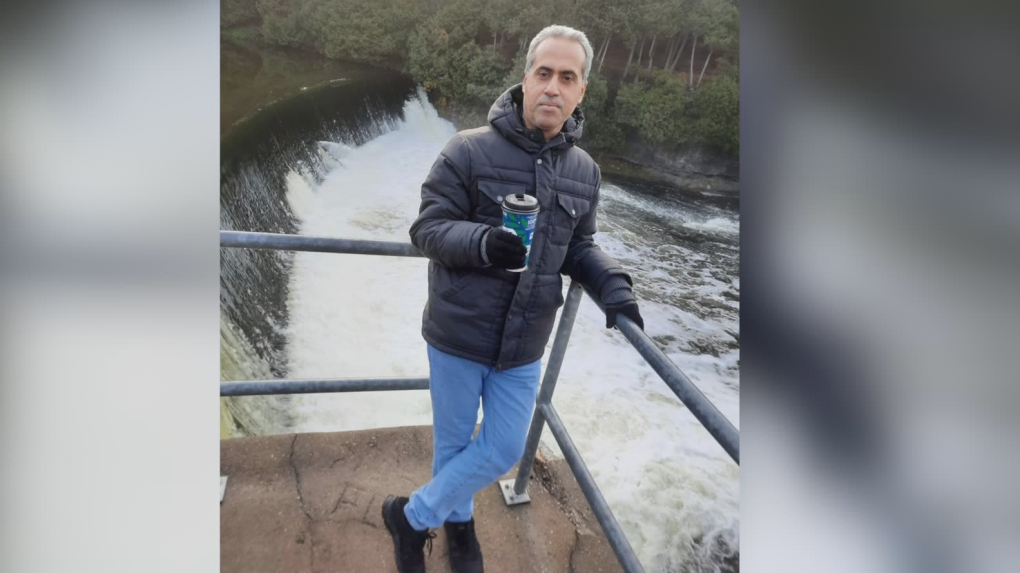 Sofyan Taya in an undated photo shared by Omar Ramahi.
Sofyan Taya in an undated photo shared by Omar Ramahi.
Ramahi called Taya a leading authority in the field of electromagnetics with a specialty in photonic crystals and biosensors. The two co-authored 10 papers together.
“It’s a major loss for the academic community,” Ramahi said. “It’s a major loss for everyone who knew him.”
NEWS OF TAYA’S DEATH
Ramahi messaged Taya after the Islamic University of Gaza was destroyed in October.
“He sent me photos, horrific photos, of the damage to the university,” he said. “His heart was shrinking. He said: ‘Tell the world this is happening to us.’”
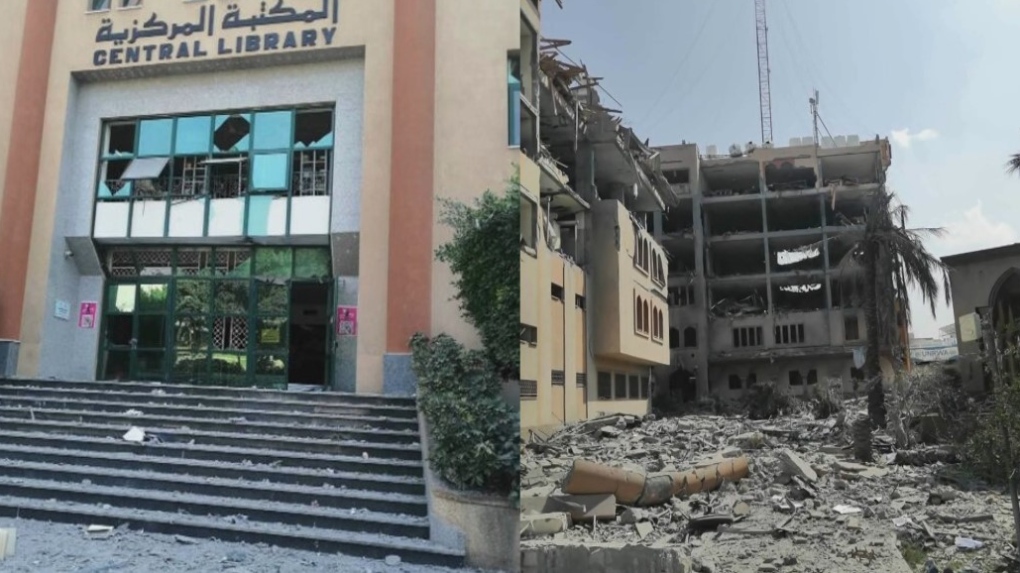 Photos taken by Sofyan Taya of the Islamic University of Gaza. (Courtesy: Omar Ramahi)
Photos taken by Sofyan Taya of the Islamic University of Gaza. (Courtesy: Omar Ramahi)
In the following days, Ramahi tried to reach out again and again.
“Simple messages, ‘Are you OK, are you alive,’ throughout the bombing of Gaza. Then he disappeared for about 10 days. I was very worried.”
Taya made contact just before he died.
“The only thing he said at the time was: ‘Things were extremely bad, exactly what you see on the [news] networks. Just pray for us.’”
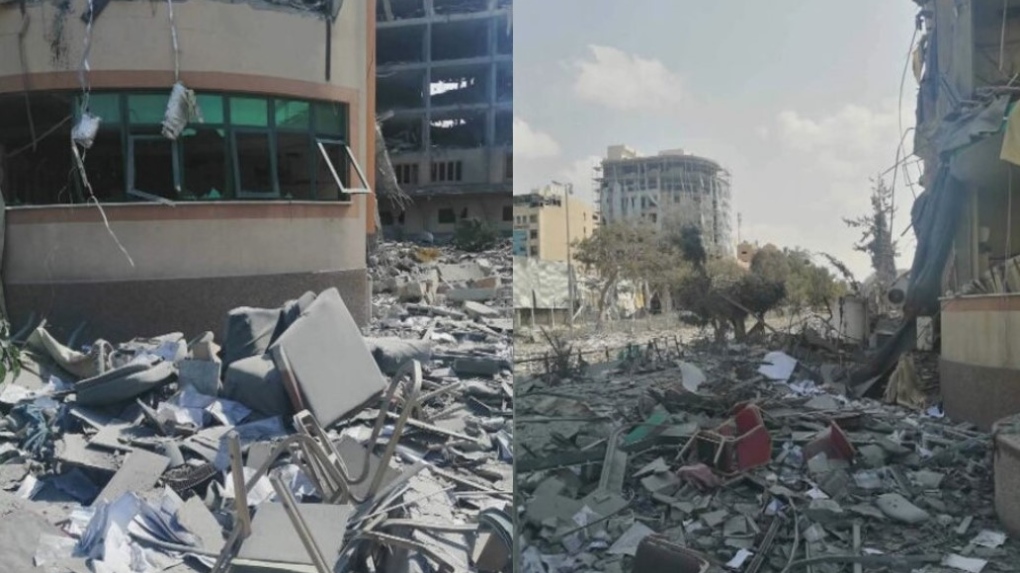 Photos taken by Sofyan Taya of the Islamic University of Gaza. (Courtesy: Omar Ramahi)
Photos taken by Sofyan Taya of the Islamic University of Gaza. (Courtesy: Omar Ramahi)
“I was in disbelief,” Ramahi recalled. “It’s hard for us to really comprehend it.”
Taya’s death really hit home to those who had worked with, or alongside, him at the University of Waterloo.
“The other day I was stopped by one the [school’s] custodians and she told me: ‘I couldn’t stop crying.’ She had to cancel her birthday, which was the same day [we found out].”
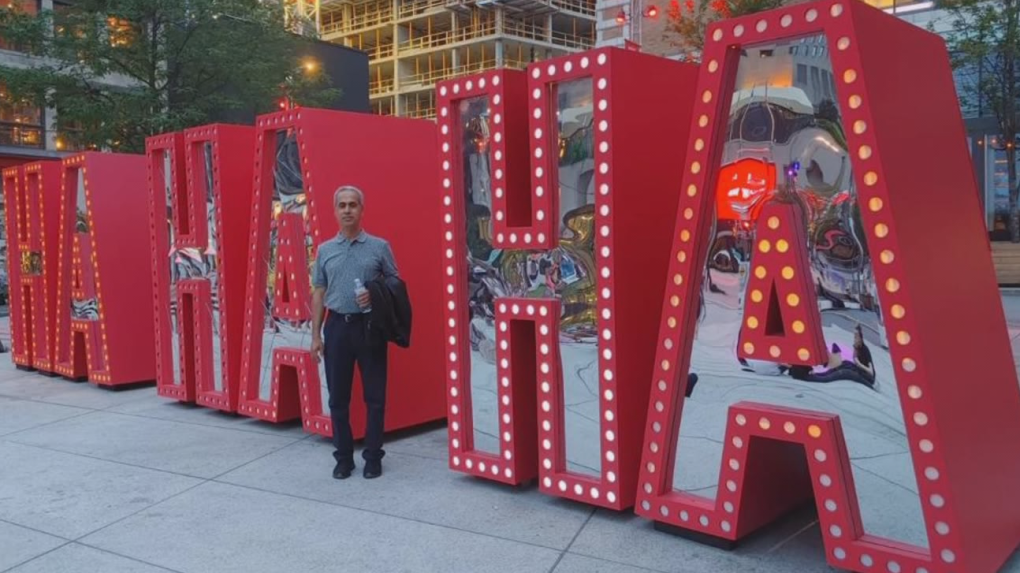 Sofyan Taya in an undated photo shared by Omar Ramahi.
Sofyan Taya in an undated photo shared by Omar Ramahi.
‘THIS IS A GENOCIDE’
Ramahi is hoping the fighting in Gaza comes to an end soon before more lives are lost.
“This is a relentless bombardment of an entire civilian population. This is a genocide,” he said. “This is insane, it’s extremely hard to comprehend what’s happening. It’s extremely hard. It has to stop, the sooner the better I think, or the world will never forgive us for allowing this major genocide to happen in front of our eyes.”
Ramahi understands why some institutions are reluctant to call for a ceasefire but believes it’s more of a humanitarian issue than a political one.
“I really don’t want the university to get involved in politics, frankly. We don’t want the university to be partisan. It really shatters the foundation of a university. It should allow people to talk, to express [themselves]. I think that’s really important for the university to make a humanitarian gesture, that’s all, not to fight politically, but to be careful about their statements in order not to look biased in one way or another. But to call for a stop to this genocide.”
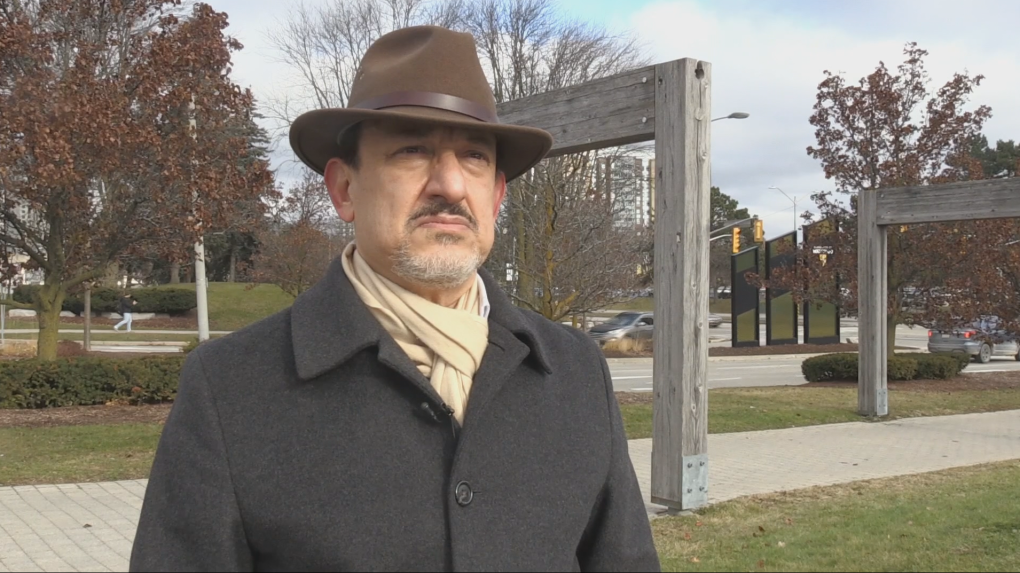 Omar Ramahi at the University of Waterloo during an interview with CTV News Kitchener. (Jeff Pickel/CTV Kitchener)
Omar Ramahi at the University of Waterloo during an interview with CTV News Kitchener. (Jeff Pickel/CTV Kitchener)
He hopes that by sharing Taya’s story, and his connection the University of Waterloo, it will make the war in Gaza a little more real.
“When it touches you personally, it changes the equation, I think, tremendously,” he said. “These are people like you and I. They have aspirations, they have a lot of hope.”
Ramahi is also calling for a stop to the “dehumanization” of Palestinians.
“If we’re silent about this genocide, something else worse might happen in the future. We don’t want this to have legal precedence. We have to react in any way possible. We’re one community.”
-- With reporting by Jeff Pickel
CTVNews.ca Top Stories

BREAKING Ontario Premier Doug Ford threatens to cut off energy to U.S. in response to Trump's tariffs
Ontario Premier Doug Ford has threatened to cut off energy supply to the U.S. in response to the tariffs President-elect Donald Trump plans to impose on all Canadian imports.
Elon Musk calls Justin Trudeau 'insufferable tool' in new social media post
Billionaire Elon Musk is calling Prime Minister Justin Trudeau 'an insufferable tool' in a new social media post on Wednesday. 'Won't be in power for much longer,' Musk also wrote about the prime minister on 'X.'
Trudeau will have to 'kiss the ring' to achieve smoother bilateral relations with Trump: John Bolton
If Prime Minister Justin Trudeau wants to get on U.S. president-elect Donald Trump's good side for the sake of a smooth bilateral relationship, he'll likely have to be openly deferential, says former U.S. National Security Advisor, John Bolton.
MAID cases rose to 15,000 in 2023, but growth of cases halved
More than 15,000 people received medical assistance in dying in Canada in 2023, but federal statistics show the growth in cases has slowed significantly.
Luxury real estate brokers charged in federal indictment with sex trafficking in NYC
Two luxury real estate brokers and their brother have been charged with luring, drugging and violently raping dozens of women over more than a decade.
Police locate labyrinth of tunnels connecting tents to generator in Hamilton encampment
Hamilton police say that they discovered a series of 'man-made holes and tunnels' during a patrol of a downtown encampment earlier this week.
Certain foods may disrupt your body's fight against cancer cells, study says
The food you eat may be affecting your body’s ability to fight cancer cells in the colon, according to a new study.
Banks lower prime rates following Bank of Canada move
Canadian financial institutions are lowering their prime lending rates to match the decrease announced by the Bank of Canada.
Toronto agency launches court challenge against new law that would shutter some supervised consumption sites
A social agency that runs a supervised consumption service (SCS) in Toronto’s Kensington Market has launched a court challenge against new legislation that will see 10 such sites shuttered across the province, arguing that the law violates the Charter of Rights and Freedoms.

































